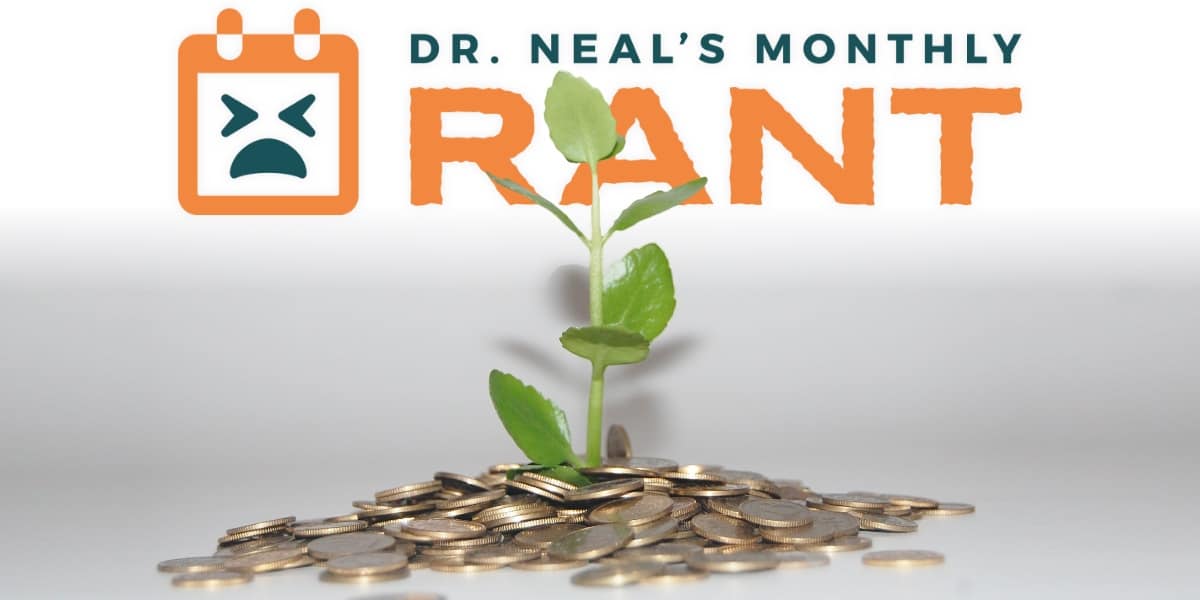Part of our approach in determining if a brand or supplement is of truly high quality is to examine the company marketing it and see if they are making false claims or misrepresenting the product.
As it pertained to foods, the USDA Organic Seal used to represent an easy, visual way to verify a truly organic product. We rant today because that is no longer the case.
Standardizing the Organic Industry
In the late ’90s (when most of our staff were teenagers – yes we’re young but that doesn’t make us less awesome!) the USDA launched the USDA Organic Seal. Along with the seal, a board called the National Organic Standards Board (NOSB) was set up to oversee the law. The board is composed of citizens, farmers, consumer advocates, and one or two slots for industry-leading corporations. Before this uniform standard, there was a hodgepodge of labels and logos with no real regulation behind them. The day the law passed was a good day for consumers.
As with most legislation, time was allotted for the transition to the stricter standards. When the law was first enacted there were a number of synthetic chemicals and additives that were still allowed to be present in the foods while manufacturers found natural alternatives. This sunset provision lasted 2-5 years, depending upon the chemical. Only if no natural or organic alternative was found, the NOSB could vote (requiring a two-thirds majority) to allow the additive to remain for a maximum of five more years. It was a great compromise to give manufacturers ample time, yet still ensure that the synthetic junk was phased out. As we all know that’s not where the story ends.
Cash Rules
Large corporations that had a financial stake in organic foods seized their opportunity. They slowly took over the NOSB, changing the landscape from being mostly independent and unbiased to a group with deeply vested financial interests in the industry.
Instead of a reduction, the NOSB has seen an increase in synthetic chemicals allowed in organic foods. More than 250 non-organic substances are on the list, up from 77 in 2002.
From the NY Times (2012):
“Six board members, for instance, voted in favor of adding ammonium nonanoate, a herbicide, to the accepted organic list in December. Those votes came from General Mills, Campbell’s Soup, Organic Valley, Whole Foods Market and Earthbound Farms, which had two votes at the time. Big Organic lost that round. Had it prevailed, it would have been the first time a herbicide was put on the list. “
Now, in their boldest power move yet, they are removing the sunset provision – the essential mechanism to ensure a move away from synthetic and towards natural. Rather than requiring a two-thirds majority in order to continue using synthetic chemicals, the chemicals will automatically be renewed. What’s worse, a two-thirds vote will be required to remove them. For all intents and purposes, these synthetic chemicals will never be removed.
We’ve previously discussed the addition of synthetic vitamins to fortify “organic” and “whole” foods. We’ve ranted about how most of these vitamins, used to fortify “Non-GMO” products, are almost entirely synthetic, GMO chemicals. GMOs, of course, are not officially allowed in organic products. That doesn’t seem to matter.
The end result, of course, is the intentional misdirection in the name of profit. Pseudo-organic products get the official seal – a mark the general public now believes stands for something. In reality, these products can be chock-full of chemicals, which millions consume with a false sense of security.
Fighting the Power
Some companies have tried to fight the weakening of organic standards. Organic Valley is one such company. They were told by the largest “natural foods” chain (some people say you might spend a whole paycheck there) and the largest distributor in the “natural” products industry to stop their fight or they would not carry or distribute Organic Valley products anymore. This resulted in Organic Valley’s silence as losing those two channels would force them into bankruptcy. Organic Valley still maintains high standards for its products, unlike most “organic” dairy companies.
Some companies fight by not participating. We love Eden Foods. They absolutely REFUSE to use the organic seal, despite their own remarkably high standards. Call them up and you can probably speak to the owner. They’ll tell you exactly why they don’t use it and how little it truly means anymore.
Reforming the Reform. Certifying the Certified
There are some awesome organizations fighting for new, real organic standards. The Organic Consumers Association (not the Organic Trade Association, which fights at every turn to weaken organic standards) and the Cornucopia Institute are on the front lines fighting for you. We really encourage you to support these groups if you believe in real, clean food. You can go to www.cornucopia.org to see what is really going on.
Guides for Transparency
Our dietitians and supplement experts have created a shopping guide (which we can’t upload since our website is broken – but reply to this email and we’ll send it to you) that lists many trustworthy organic companies with high standards. Use this as a starting point in your quest to make the best health decisions. It’s not yet exhaustive, so ask one of us for more insight. We are constantly researching and refining this list, as we do with our supplements and wellness products. If you know of a great company, email us and we’ll check them out and add them to the list!
Don’t Give Up Hope!
We believe people should have access to clean, safe food. Big corporations are making this industry the Wild West. There are brands out there fighting the system to do the right thing. We’re happy to be the sheriffs.
Just trying to keep it real…

Neal Smoller, PharmD
Owner, Pharmacist, Big Mouth



